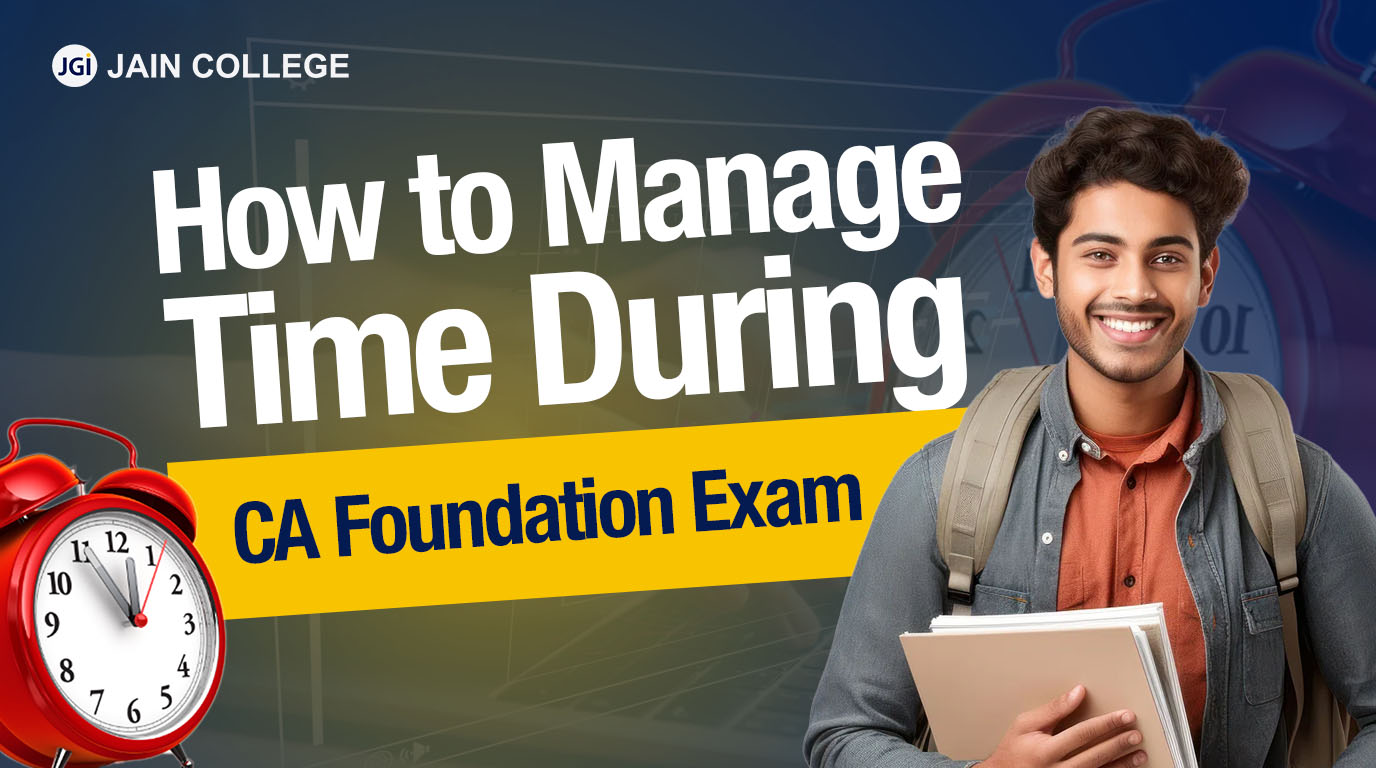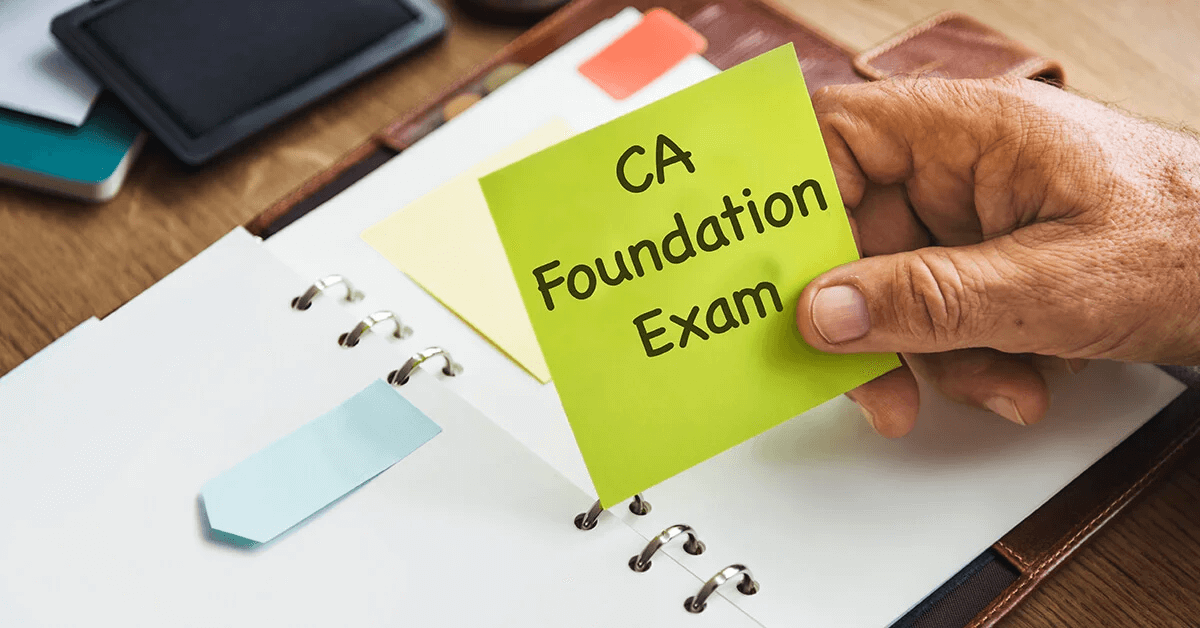
Table of Contents
Introduction
Understand the Exam Pattern and Time Allocation
Practice with Timed Mock Tests
Time Allocation for Questions During Exams
Prioritise Easy Questions
Avoid Overwriting and Over-Explaining
Manage Your Writing Speed
Utilise the Reading Time Wisely
Keep an Eye on the Clock
Stay Calm and Avoid Panic
Spare time for revision
Conclusion

A CA Foundation examinee has approximately six months to prepare for the exam, which includes four subjects. You appear for four papers of 100 marks each, Papers 1 and 2 are subjective, while Papers 3 and 4 are objective. The CA Foundation exam aims to test conceptual clarity and its application within the allotted time. Many students struggle with completing their papers on time, leading to unnecessary stress and loss of marks. In this blog, we will discuss effective strategies to help you manage time efficiently during your CA Foundation exam.

Before appearing for the exam, it is essential to have a clear understanding of the exam pattern. The CA Foundation exam consists of four papers, each paper of 100 marks:
The subjective papers have questions where the examinee’s answers must show structured writing, while the objective papers demand quick and accurate answers. Knowing the format of each paper will help you plan your approach accordingly.
Timed mock tests are important for CA Foundation preparation as they are the closest to simulating a proper exam environment. Solve previous years’ question papers with a timer and attempt the paper within the allotted time. This practice will help you:
During the exam, divide your time according to the marks allotted to each question. For example:

CA Foundation is the first step in the CA certification programme. So, your aim here should be to clear the exam and qualify for the next exam. So, prioritise questions that you find easy and those that are scoring. Also, starting with questions you are confident about will boost your confidence and leave you with more time for difficult questions.
Conciseness and precision are very important qualities for a Chartered Accountant. So, always answer to the point. Examiners are looking for clarity and accuracy, not lengthy explanations. Stick to the required format:
Write fast and legibly so that the examiner can read what you have written. If you have poor handwriting, or your handwriting becomes messy while writing fast, then space your answers to make them appear neat. If you have made a mistake, don’t over-write, strike out the answer and rewrite it. Don’t try to alter figures, cancel them and rewrite them. Poor handwriting can lead to loss of marks if the examiner struggles to read your answers. Hence, practice writing answers regularly during your revision to improve your speed.
Some students prefer to spend the first few minutes of the exam to read the entire question paper, while others like to take breaks in between to check the next questions. Both techniques are fine. Just ensure that you skim through the entire question paper and:
If you feel that any of the sections have difficult questions, don’t get anxious. This is the time to focus yourself completely on writing the answers that you know and try to complete the paper within the allotted time.
Be mindful of time throughout the exam. Check the clock after some interval to ensure you are on track. If you are running behind, adjust your pace accordingly.
Panicking won’t help you in the exam hall, instead it will slow you down. If you feel overwhelmed, take a deep breath, refocus, and move forward. A calm mind processes information faster and performs better. Try to focus completely on the problem and begin writing, you will slowly catch the rhythm and gain confidence.
Always reserve some time for revision. Whether you take breaks between questions to go back and read the answers or do it in the last 15 minutes before the exam ends, it is your choice. Read every answer to -
Time management during exams is a challenge, especially when the paper is lengthy. By following the above strategies, CA Foundation students can optimise their time during the exam and improve their chances of scoring well. Remember, success in CA exams is not just about knowledge but also about effective execution within the given time frame. You can learn more about how to prepare for the CA Foundation exams correctly and get the best coaching for it with the CA integrated programme offered at JAIN PU College in association with ALLEN Institute. So, plan well, practice rigorously, and stay confident! Check out the CA integrated programme to learn more about the course.

JAIN PU College, a part of the renowned JGI Group, is committed to empowering students with quality education.
Beyond academics, the college ensures its online content reflects the same standard of excellence. Every blog and article is meticulously vetted and proofread by subject matter experts to ensure accuracy, relevance, and clarity. From insightful educational topics to engaging discussions, JAIN PU College's content is crafted to inform, inspire, and add value to its readers, reflecting the institution's commitment to intellectual growth and innovation.
View all Blogs